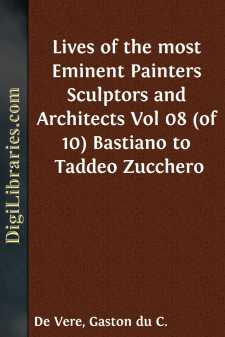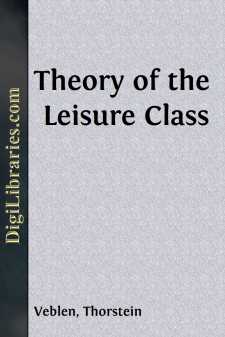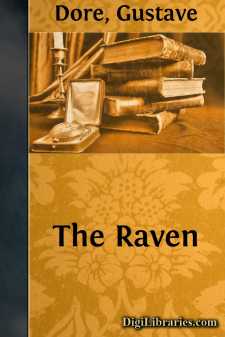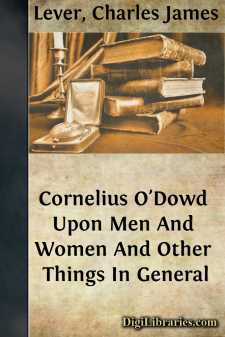Categories
- Antiques & Collectibles 13
- Architecture 36
- Art 48
- Bibles 22
- Biography & Autobiography 813
- Body, Mind & Spirit 142
- Business & Economics 28
- Children's Books 17
- Children's Fiction 14
- Computers 4
- Cooking 94
- Crafts & Hobbies 4
- Drama 346
- Education 46
- Family & Relationships 57
- Fiction 11829
- Games 19
- Gardening 17
- Health & Fitness 34
- History 1377
- House & Home 1
- Humor 147
- Juvenile Fiction 1873
- Juvenile Nonfiction 202
- Language Arts & Disciplines 88
- Law 16
- Literary Collections 686
- Literary Criticism 179
- Mathematics 13
- Medical 41
- Music 40
- Nature 179
- Non-Classifiable 1768
- Performing Arts 7
- Periodicals 1453
- Philosophy 64
- Photography 2
- Poetry 896
- Political Science 203
- Psychology 42
- Reference 154
- Religion 513
- Science 126
- Self-Help 84
- Social Science 81
- Sports & Recreation 34
- Study Aids 3
- Technology & Engineering 59
- Transportation 23
- Travel 463
- True Crime 29
Sort by:
by:
Various
The settlement of the terms of peace between Turkey and Greece promises to be a very long and tedious matter. It has been announced that Turkey offers to conclude peace, provided Greece pays her $15,000,000 to cover her war expenses, gives her certain strategic points in Thessaly, and turns over to her the Greek fleet until the war expenses are paid. The Sultan has begun the negotiations by asking for...
more...
by:
Various
LITERARY COTERIES IN PARIS IN THE LAST CENTURY. The revolutions of society are almost as sure if not as regular as those of the planets. The inventions of a generation weary after a while, but they are very likely to be revived if they have once ministered successfully to pleasure or ambition. The famous coteries in which learning was inter-blended with fashion in the golden age of French intelligence,...
more...
CHAPTER I. "I wish most heartily that something would happen," Harry Parkhurst, a midshipman of some sixteen years of age, said to his chum, Dick Balderson, as they leaned on the rail of her majesty's gunboat Serpent, and looked gloomily at the turbid stream that rolled past the ship as she lay at anchor. "One day is just like another—one is in a state of perspiration from morning...
more...
Last Bull That was what two grim old sachems of the Dacotahs had dubbed him; and though his official title, on the lists of the Zoölogical Park, was “Kaiser,” the new and more significant name had promptly supplanted it. The Park authorities—people of imagination and of sentiment, as must all be who would deal successfully with wild animals—had felt at once that the name aptly embodied the...
more...
by:
Annie Brassey
In giving to the reading world these pages of the last Journal of one of the most popular writers of our day, no apology can be needed, and but little explanation. A word had better perhaps be said, and said here, as to my share in its composition. It is now twelve years ago since my friend—then Mrs. Brassey—asked my advice and assistance in arranging the Diary she had kept during the eleven...
more...
by:
Ray Cummings
THE WORLD BEYOND By RAY CUMMINGS The old woman was dying. There could be no doubt of it now. Surely she would not last through the night. In the dim quiet bedroom he sat watching her, his young face grim and awed. Pathetic business, this ending of earthly life, this passing on. In the silence, from the living room downstairs the gay laughter of the young people at the birthday party came floating up....
more...
When Pietro Perugino, by that time an old man, was painting the altar-piece of the high-altar of the Servites at Florence, a nephew of Giuliano and Antonio da San Gallo, called Bastiano, was placed with him to learn the art of painting. But the boy had not been long with Perugino, when he saw the manner of Michelagnolo in the cartoon for the Hall, of which we have already spoken so many times, in the...
more...
by:
Thorstein Veblen
Chapter One ~~ Introductory The institution of a leisure class is found in its best development at the higher stages of the barbarian culture; as, for instance, in feudal Europe or feudal Japan. In such communities the distinction between classes is very rigorously observed; and the feature of most striking economic significance in these class differences is the distinction maintained between the...
more...
by:
Gustave Dore
THE RAVEN.Once upon a midnight dreary, while I pondered, weak and weary,Over many a quaint and curious volume of forgotten lore,While I nodded, nearly napping, suddenly there came a tapping,As of some one gently rapping, rapping at my chamber door."'T is some visiter," I muttered, "tapping at my chamber door—Only this, and nothing more."Ah, distinctly I remember it was in the...
more...
MYSELF. Bland Reader,—If you ever look into the Irish papers—and I hope you are not so exclusive regarding them as is Mr Cobden with the 'Times'—you will see that, under the title, "Landed Estates Court, County Mayo," Judge Dobbs has just sold the town and lands of Kilmuray-nabachlish, Ballaghy, and Gregnaslattery, the property of Cornelius O'Dowd, Esq. of Dowd's...
more...











